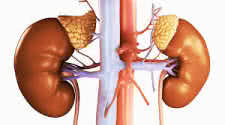Potential Dangers of Creatine - Can Creatine Cause Renal Kidney Damage?

Understanding what Supplements actually Supplement for You is Key
For a number of athletes out there, a common question lies in the use of creatine. Many people are concerned about potential side-effects,
or negative effects on kidneys. Is it actually possible that creatine supplementation can cause renal damage, is there really any truth to
this?
In a word, no. Creatine is a safe supplement for healthy bodybuilders. For years, the Safety Nazis have spread rumors causing speculation
that creatine may damage the kidneys, but recent studies have demonstrated that to be false.
Much of the confusion comes from the fact that supplementing with creatine increases blood creatinine. Creatinine is a waste product that
is often used as a marker by medical personnel to determine if a person suffers from renal problems. Since both creatine supplementation
and kidney problems can elevate creatinine, there has been a tendency to associate the two. If you supplement with creatine, you can expect
your creatinine levels to rise, hut that doesn't mean you have kidney problems. Most doctors, when made aware of your creatine
supplementation, will know to look elsewhere to get a clearer picture of your kidney function.
A study presented at the American College of Sports Medicine conference this past summer confirms that the supplement is safe for healthy
athletes. According to Dr. Kerry Kuehl, who conducted the research, "Measurement of renal function has relied only on measures of serum and
urine creatinine, which may not he a valid determination of glomerular filtration rate (GFR) in creatine users." The researchers examined
the effects of creatine supplementation on renal function in 36 healthy active men and women (K. Kuehl et al., "Effects of Oral Creatine
Monohydrate Supplementation on Renal Function in Adults," Oregon Health Sciences University, Portland, Oregon). "We designed our study so
that we could check GFR levels to conclusively show whether or not creatine causes adverse affects on renal function." The subjects' GFRs
were measured at the beginning of the investigation and at the fourth, eighth and 12th weeks. The cost was about $1,000 per test per
subject, for a grand total of $144,000 - an indication of why this study may not have been performed before. "We found that creatine does
not cause any damage to renal function," Kuehl says.
So why do some athletes who supplement with creatine haverenal problems? First, those cases often get an inordinate amount of press -
undeservedly so-which makes the problem seem more pervasive. Second, some athletes put themselves on the path to renal conditions by the
nature of their training. Kuehl explains that otherwise healthy athletes can create renal function problems by allowing themselves to get
dehydrated through exercise and by training in heat. "Creatine supplementation on top of these conditions may he enough to push these athletes
over the edge." In other words, once you allow yourself to become overly dehydrated, you've already stressed your kidneys; at that point, you
are no longer a "healthy athlete."
The final word is that creatine is safe, but bodybuilders must keep themselves hydrated, whether or not they use the supplement. The average
person should consume eight eight-ounce glasses of water a day. Bodybuilders should consume more - anywhere from 12 to 16 glasses, and Kuehl
recommends that anyone who supplements with creatine should add an extra liter on top of that.
As far as creatine dosage is concerned, five grams per day seems an effective amount for long-term use. Instructions on many supplement
bottles encourage larger amounts, particularly during a loading phase. Remember, though, that much of this will simply be converted into
creatinine, which is body waste rather than body weight.